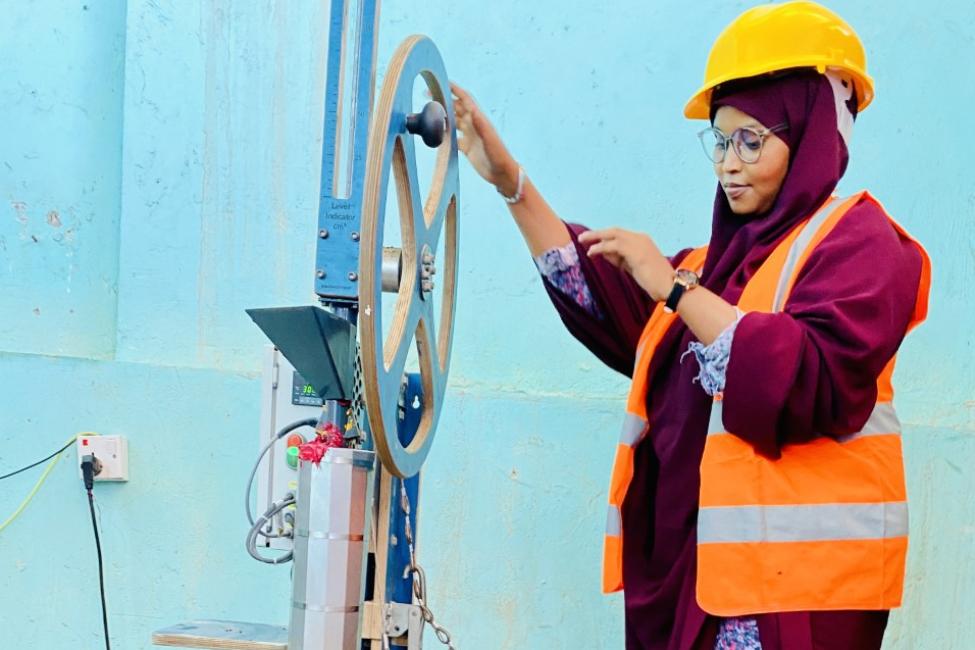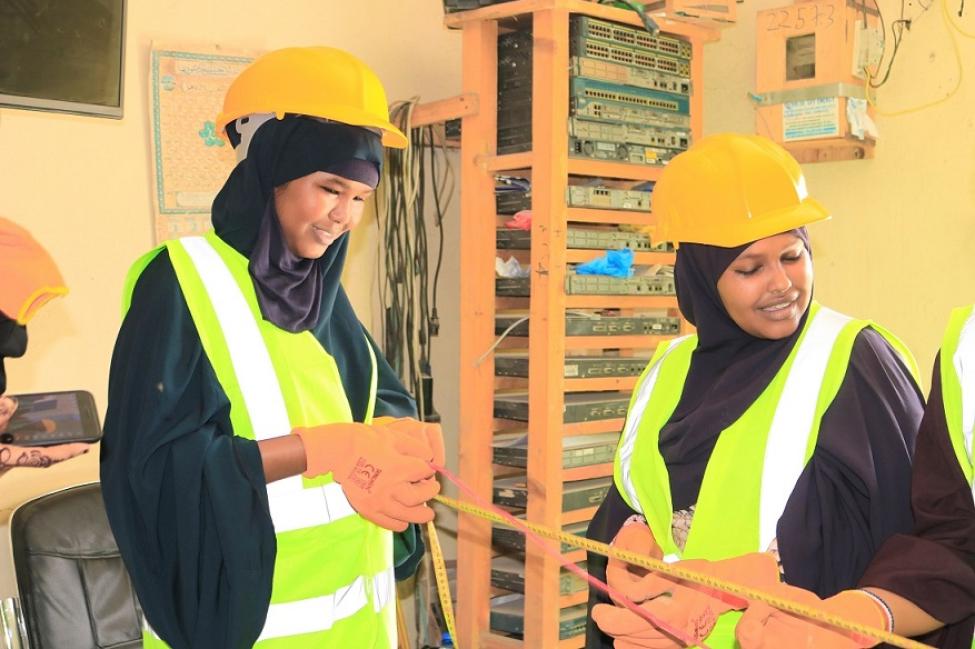-
Who We Are
WHO WE AREThe International Organization for Migration (IOM) is part of the United Nations System as the leading inter-governmental organization promoting since 1951 humane and orderly migration for the benefit of all, with 175 member states and a presence in over 100 countries. IOM has had a presence in Somalia since 2006.
About
About
IOM Global
IOM Global
-
OUR WORK
Our WorkAs the leading inter-governmental organization promoting since 1951 humane and orderly migration, IOM plays a key role to support the achievement of the 2030 Agenda through different areas of intervention that connect both humanitarian assistance and sustainable development. Across Somalia, IOM facilitates transition of Internally Displaced Persons (IDPs) and refugees towards durable solutions by providing services and support for Migrants and Mobile Populations.
Cross-cutting (Global)
Cross-cutting (Global)
- Data and Resources
- Take Action
- 2030 Agenda
Mogadishu - IOM trained 50 men and 40 women affected by the displacement crisis in Mogadishu on solar renewable energy, waste management and plastic recycling. The three-month training aimed to improve displaced communities living in the districts of Hamar Jabab and Daynile access to job opportunities in the context of climate change.
At least 1.4 million people have been displaced by the severe drought in Somalia. The catastrophic effects of the drought are destroying livelihoods and forcing people to leave their homes in search of water, food and humanitarian assistance.
“The purpose of the training was to find long-term solutions to the climate crisis and help communities adopt to prevent further displacement and protect their lives. The participants included Internally Displaced Persons (IDPs), host community and returnees,” said Hamza Osman, Field Monitoring Officer in IOM Somalia. “Most people were pastoralists who are now moving to urban and peri-urban centres and need new skills to integrate and adapt to the cities.”
During the training, 54 students came up with sustainable business ideas and received cash prizes to set up their ventures. They also received mentorships to start their businesses as well as apprenticeship opportunities.
One of them was Nuur who lives in one of the numerous displacement settlements. Nuur was dedicating his time to help with maintenance of the site for free and out of good will. “This training has been worthwhile; I can now earn an income while keeping the environment clean. My self-esteem has been restored because I can now provide for my family” he said explaining how the training he received on plastic recycling drastically changed his life.
Naima,'s parents lost their livelihood due to the drought, which prevented her to start her graduate studies. “The training in solar energy systems was a great opportunity to acquire new skills. I can now look for a job to help my family,” said the 24 year-old who lives in one of the displacement sites.
The trainees were selected after a baseline survey to assess their vulnerabilities and backgrounds as well as their skills, knowledge and access to opportunities. The Horn of Africa Community Development Action (HACDA) in coordination with IOM developed the framework and identified the criteria to select these participants.
Ahmed Abdow, another student living in Hamar Jajab District, could not contain his excitement, “I have gained practical skills in solar system wiring, installation of batteries and troubleshooting solar systems. I am confident with these skills I will find a better employment that will enable me to provide for my family.”
The training was part of the Addressing Drivers and Facilitating Safe, Orderly and Regular Migration in the Contexts of Disaster and Climate Change in the IGAD Region project and was made possible thanks to generous funding from IGAD, MMPTF, HACDA, UNHCR, ILO and IOM.
For more information contact IOM Somalia Media and Communications Division: smsommedia@iom.int

